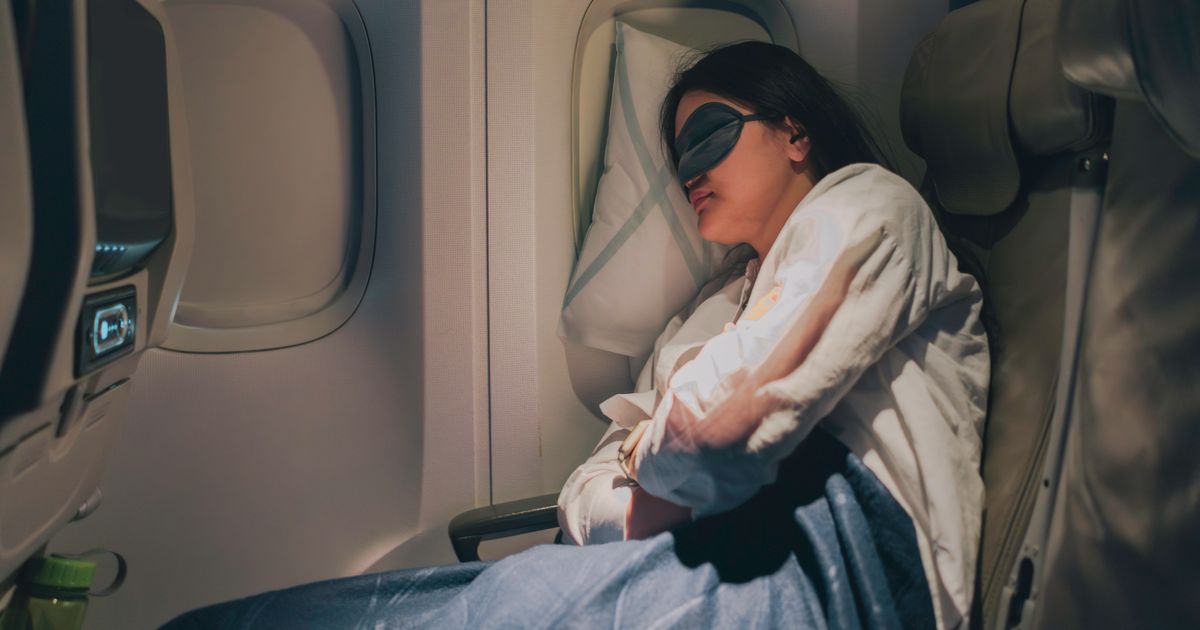Funnily enough, on my recent budget red-eye flights to and from Indonesia, I slept better than I expected. I’m typically not a good plane sleeper, so what changed?
I noticed I had let go of my idea of “the perfect flight sleep,” which for me involves earplugs, an eye mask, a neck pillow and a reasonable seat recline. I had none of these things, but told myself it was no big deal. This helped me relax enough to rest, and ultimately nod off on the plane.
Curious about how this happened, I reached out to sleep psychologists. They said it wasn’t surprising. It turns out the thoughts running through your head can make it harder to sleep on planes ― especially if they end up becoming rigid rules.
In other words, placing expectations or pressure on yourself to sleep often backfires, according to Caroline Jennings, a clinical psychologist who holds a certification in behavioral sleep medicine.
These beliefs may sound like, “If I don’t get enough sleep on this flight, the vacation/conference/event I’m flying to will be terrible on that first day.” Or perhaps, “I’ve spent so much money on this vacation, so I need to sleep so I feel refreshed and not waste any moment of it.”
Maybe you’ve upgraded to a flatbed seat and researched the best pillow online only to find you’re not drifting off. Or you might anticipate being woken up anyway throughout the duration of your flight.
It’s not totally your fault for thinking this way. From an evolutionary standpoint, humans will not sleep well if they detect a threat.
“The threat activates the fight, flight or freeze response, which is protective if there’s a threat. We’re going to be a little bit more on guard. We’re going to be monitoring the environment. We’re going to be keeping our wits about us,” Jennings said.
When you introduce sleep expectations, it piles pressure on you to sleep. “When you’ve put that pressure of ‘I need to sleep, it’s really important that I do,’ you’ve sort of introduced this threat, ‘You better sleep, or else!’” Jennings explained.
The threat causes you to feel anxious, upset and frustrated, which makes it more difficult to fall asleep or sleep well.
Putting conditions on your sleep ― like needing a certain pillow ― can also make it harder for your body to fall asleep if those conditions aren’t met. “If you do run into a situation where you don’t have that pillow or that seat, you’re going to convince yourself that you’re not…
Click Here to Read the Full Original Article at Travel…
